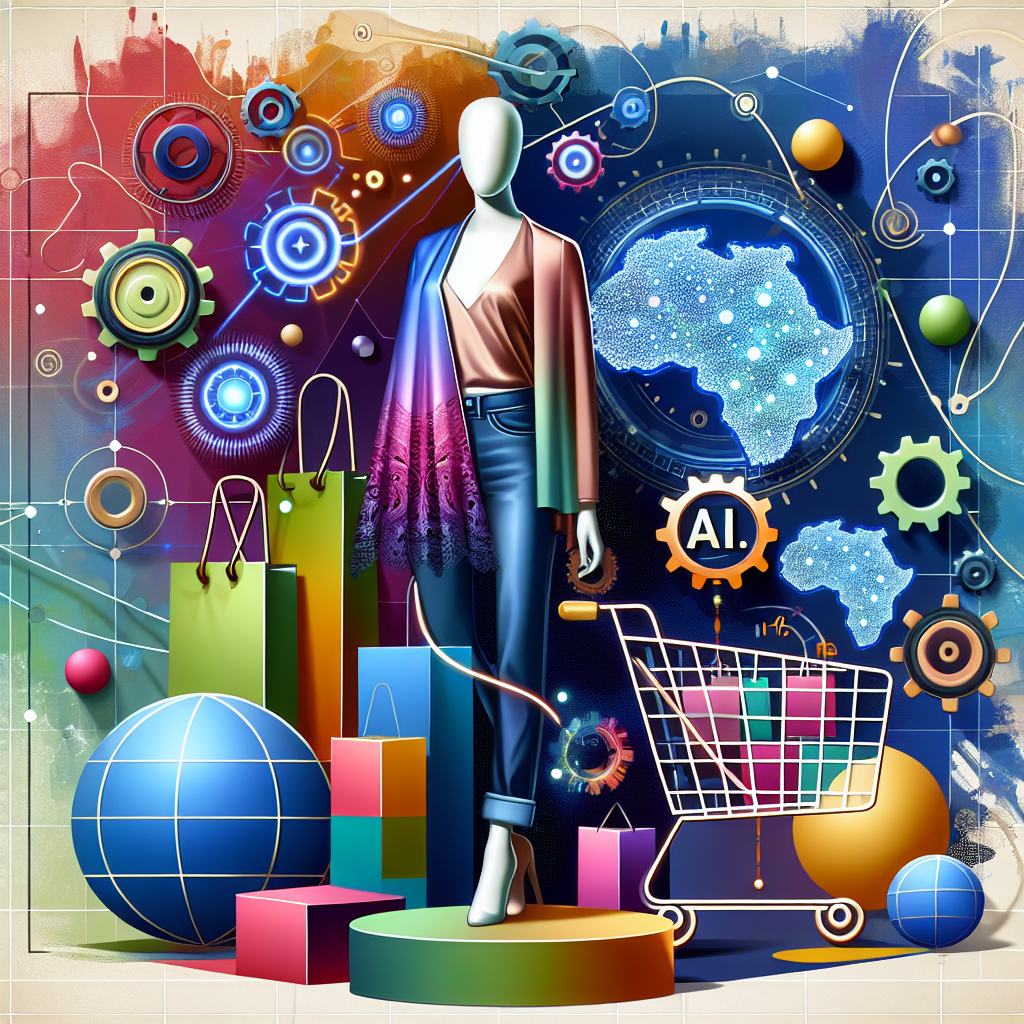With the rise of artificial intelligence (AI) in various industries, the fashion e-commerce and online retail sector has also seen a significant impact. AI technology has transformed the way consumers shop for clothing, accessories, and other fashion items online. From personalized recommendations to virtual try-on tools, AI is revolutionizing the online shopping experience for fashion enthusiasts around the world.
One of the key ways in which AI is changing the landscape of fashion e-commerce is through personalized recommendations. By analyzing customer data and behavior, AI algorithms can suggest products that are tailored to individual preferences and style. This not only helps customers discover new items that they may like, but also increases the likelihood of making a purchase. According to research, personalized recommendations can lead to a 50% increase in conversion rates and a 300% increase in customer engagement.
Another way in which AI is impacting fashion e-commerce is through virtual try-on tools. These tools use AI and augmented reality (AR) technology to allow customers to see how clothing items will look on them before making a purchase. This not only reduces the likelihood of returns due to sizing issues, but also enhances the overall shopping experience for customers. Virtual try-on tools have become increasingly popular among online retailers, with many big brands incorporating them into their websites and apps.
AI is also being used to improve the efficiency of the supply chain in the fashion industry. By analyzing data on trends, customer preferences, and inventory levels, AI algorithms can help retailers optimize their inventory management and forecasting. This can lead to reduced costs, increased sales, and improved customer satisfaction. In addition, AI-powered chatbots are being used to provide personalized customer service and support, helping retailers to better engage with their customers and address their needs in real-time.
Overall, the impact of AI on fashion e-commerce and online retail has been profound. From personalized recommendations to virtual try-on tools, AI is transforming the way consumers shop for fashion items online. By leveraging AI technology, retailers can improve customer engagement, increase sales, and streamline their operations. As AI continues to evolve and become more advanced, we can expect to see even more innovative solutions that will further enhance the online shopping experience for fashion enthusiasts.
Frequently Asked Questions (FAQs):
Q: How does AI technology improve the online shopping experience for customers?
A: AI technology improves the online shopping experience for customers by providing personalized recommendations, virtual try-on tools, and efficient customer service. This helps customers discover new products, find the right size, and get real-time support when needed.
Q: Can AI algorithms accurately predict customer preferences?
A: AI algorithms can accurately predict customer preferences by analyzing data on past purchases, browsing behavior, and feedback. This allows retailers to offer personalized recommendations that are tailored to individual preferences and style.
Q: How do virtual try-on tools work?
A: Virtual try-on tools use AI and AR technology to superimpose clothing items onto a customer’s body in real-time. This allows customers to see how the items will look on them before making a purchase, reducing the likelihood of returns due to sizing issues.
Q: How can AI help retailers optimize their inventory management?
A: AI can help retailers optimize their inventory management by analyzing data on trends, customer preferences, and inventory levels. This allows retailers to forecast demand more accurately, reduce costs, and improve customer satisfaction.
Q: What are some examples of AI-powered chatbots in fashion e-commerce?
A: Some examples of AI-powered chatbots in fashion e-commerce include virtual stylists, personalized customer service bots, and automated order tracking systems. These chatbots help retailers engage with customers, address their needs, and provide support in real-time.

